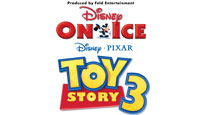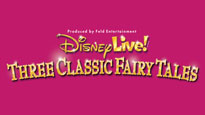
The day the music changed: Apple iPod turns 10
CHICAGO â€" A cultural shift that eventually became a landslide began 10 years ago this month, though almost no one noticed at the time. Apple Inc. rolled out a portable MP3 player it dubbed the iPod, and after a promising opening quarter in 2002, sales dropped more than 50 per cent.
The next year, Apple opened the iTunes digital music store; even though it held only 200,000 songs, a natural synergy was created with the iPod. Sales of the portable player quadrupled in 2004 to more than 4 million units. The pocket-sized player with the white ear buds was endorsed in iconic television commercials by bands and artists such as U2, Gorillaz, Feist, Daft Punk, Black Eyed Peas and Coldplay.
Now the iTunes store is the single biggest music retailer in the world, with more than 20 million tracks available and 16 billion songs downloaded since its launch. And the iPod is by far the most popular digital music player, commanding nearly 80 per cent of the market and piling up a staggering 300 million sales since 2001.
“Even artists who were longtime holdouts, like the Beatles, are now part of the (Apple) ecosystem,†technology analyst Michael Gartenberg says. “They realize this is where consumers are listening to their music and, more importantly, buying their music.â€
Undeniably, the iPod and iTunes have brought a previously unimagined portability and convenience to music-hungry consumers, but at what price? Has the ease of distributing, listening and replenishing music made it all feel somewhat disposable?
Technological shifts in how music is made and delivered are nothing new. They created entire industries over the last 100 years. The invention of the phonograph led to the rise of record companies, and radio’s emergence widened their reach exponentially. The introduction of the cassette and then the compact disc culminated in a $16 billion business by the end of the 20th century, and fueled the rise of portable players such as the Walkman and Discman.
Now the iPod has been central to a new way of making, distributing, and listening to digital music. The iPod was not the first portable MP3 player, but it was the one that changed the music business and the culture around it. In a few short years, the ability to pack an entire music collection in a device that fits in your pocket made the rituals of dropping a needle on a vinyl album, rewinding a cassette or figuring out how to strip the cellophane wrapping off a compact disc seem so quaintly 20th century.
Not that some diehards don’t still cling to their turntables and CDs. Vinyl album sales have surged in recent years, driven by connoisseurs, audiophiles and young music listeners longing for a deeper, more tactile connection to the music they love. But digital music files now dominate the retail market, which is to say Apple Inc. dominates the digital market.
In the pre-digital music world, acquiring music below the mainstream radar involved something akin to a treasure hunt. If you grew up in a small town or rural area especially, you often had to chase the music, sometimes taking months or years to find a rare limited-edition single by a favorite punk band or an out-of-print album by German art-rockers from the ‘70s. There was lasting value attached to the prize, a physical artifact that became part of your life, a piece of music that also functioned as a small, relatively affordable piece of art.
Now that virtually any song, no matter how obscure, can be located with a couple of clicks, some pundits argue that the iPod has become cooler than the music it contained. Consumers fill their sleekly designed, increasingly compact music players with thousands of songs that are continually recycled. The tracks are listened to over marginally adequate ear buds on an inferior format (MP3 files contain less sonic information than a CD or vinyl album), often to complement other activities. (Apple’s iTunes store sells songs in the superior AAC format.)
Despite the emergence of the iTunes store and other on-line retail music outlets, the vast majority of music acquired digitally is done through file-sharing. Many first-generation iPod listeners have no problem buying and replacing their iPods, putting hundreds of dollars in Apple’s pocket for the hardware. But they fill them with music acquired free through illicit channels, which the music industry says has contributed mightily to its huge revenue losses in the last decade.
Yet in recent years there are indications that as a wider variety of music has become available at legitimate digital stores, a viable digital music market is finally emerging. Digital album sales increased 13 per cent in 2010 and 19 per cent in the first half of 2011, and track-equivalent album sales were up 4.8 per cent. The latter figure is perhaps the most important in identifying the impact of the iPod/ iTunes era on consumer habits; rather than focusing on albums, consumers are now buying digital tracks and singles at an increasingly high rate.
“People in the last decade are able to sample more music because they can download a song at a time instead of an entire album,†a relatively low-risk purchase that encourages sampling of new artists, Gartenberg says. “The two generations before didn’t know what it meant to buy a single. You either bought the entire CD or you didn’t buy any music at all. Now consumers are still buying entire CDs worth of music, but those CDs are just made up of different songs.â€
Despite its massive success, the 10-year-old iPod likely won’t be around to celebrate its 20th anniversary. Stand-alone portable music players are increasingly being replaced by iPhones, smart phones and tablets, as technology companies strive to serve consumers who increasingly want to access their music through cloud-based streaming services rather than having them tied to their hard drives. It means that music will be even more widely and instantly available to more people, taking the innovations of the iPod era to another level ñ “the paradise of infinite storage†as McGill University professor Sandy Pearlman calls it, ultimately with access anywhere, anytime to every song ever recorded at the touch of a screen.
The iPod landslide has only just begun.
 If you don’t acquire your tickets to Washington Redskins vs. San Francisco 49ers’s game in Landover, MD during this presale you might not be able to order them before they sell out.
If you don’t acquire your tickets to Washington Redskins vs. San Francisco 49ers’s game in Landover, MD during this presale you might not be able to order them before they sell out.










 It's polite to include the
It's polite to include the 






 Rachel Sermanni en première partie de Fink à la Cigale.
Rachel Sermanni en première partie de Fink à la Cigale. 






 Want the
Want the 
